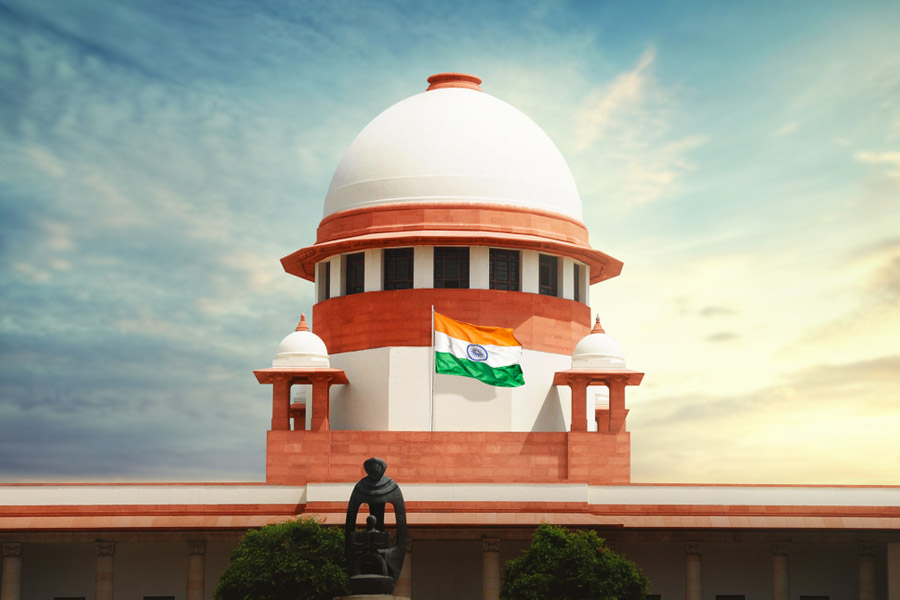Is it okay to say a woman is wearing “provocative clothing,” that she might be a “seductress” or even, heaven forfend, be “a slut” ? The answer, if it isn’t immediately obvious, is of course not – and especially now not in Indian courts.
The Supreme Court, under the guidance of Chief Justice D. Y. Chandrachud, has gone to war against gender stereotypes. It’s just released a handbook called, Combating Gender Stereotypes, that lays down a long list of “do’s and don’ts” for lawyers. In a foreword, Chandrachud says the handbook aims, “to ensure that legal reasoning and writing is free of harmful notions about women.”
Making his point that what may have been acceptable in the past, definitely isn’t now, he adds: “Many words or phrases that are used in legal discourse (both by lawyers and by judges) reflect archaic ideas with patriarchal undertones.”
The handbook makes it crystal clear what’s acceptable and what’s not, by offering a list of what it calls "Stereotype Promoting Language (Incorrect)" and "Alternative Language (Preferred)". So it’s Stereotype Promoting to talk about a person having “an affair”. The preferred term is: “relationship outside marriage”. And strike out the word “adulteress” from your legal vocabulary and replace it with the longer but much more correct: “Woman who has engaged in sexual relations outside of marriage.”
What about the word “bastard” which carried a huge stigma in earlier decades and centuries? Lawyers may be muttering it under their breath when a case isn’t going their way. But it shouldn’t be used in its original meaning. The acceptable form is now: “Non-marital child or, a child whose parents were not married.”
Several of the words or expressions that find their way into Chandrachud’s list refer to women having sexual relations outside marriage. Clear “no-nos” are words like "adulteress" and “concubine” or “keep” which should be replaced by the rather lengthy: “Woman with whom a man has had romantic or sexual relations outside of marriage.”
It’s important to be careful even when offering what might once have been seen as praise. So, lawyers should drop the adjective when talking about a “chaste woman.” That should be just “woman.” And expressions like “dutiful wife/faithful wife/ good wife/obedient wife” must be “wife.” “Obedient wives” are clearly a construct of a patriarchal society. And a woman of “easy virtue” is just a: “woman.” The same goes for “fallen woman” which again must lose its objectionable adjective.
Even commonly used terms with a neutral connotation like “career woman” should lose the adjective and be just: “woman”. And housewives should be the more positive sounding: “Homemaker”. Also, be careful about describing a woman as an Indian woman/Western woman. Just “woman” will do “fine.” The more harmless sounding “ladylike” should also be struck from the legal vocabulary. “Use a gender-neutral description of behaviour or characteristics,” instructs the handbook. Marriageable age is also turned down in favour of the precise: “A woman who has attained the legal age required to marry.”
Firmly strike off “prostitute” who should accurately be called a “sex worker.” And “whore” should just be woman. It’s the same with “Woman of loose morals/ Easy Virtue/ Promiscuous Woman and Wanton” woman. Once again, the clear rule is: drop the adjective.
“Eve-teasing” is an expression unheard outside India. But now it’s getting the thumbs down in Indian courts. Instead, lawyers can talk about the rather formal sounding: “Street sexual harassment”.
Men haven’t been left out entirely. The courts will frown on the word: “effeminate” (when used pejoratively). The handbook offers the advice: “Accurately describe the characteristic using a gender-neutral term (e.g. confident or responsible).” And “faggot” is definitely off the books. Lawyers should be careful to: “Accurately describe the individual’s sexual orientation (e.g., homosexual or bisexual.”)
Similarly, transgender should replace transsexual and cross-dresser is the correct term and not transvestite.
And the widely used “Provider/Breadwinner” should be just employed or earning.
The handbook goes on to explain that its aim is to drop words that create or reinforce stereotypes. It says: “Stereotypes lead to exclusion and discrimination in workplaces, educational institutions and public places.” In the Indian context, it adds that discrimination can be related to castes.
In the legal context, it points out that:”Stereotypes impact the impartiality and the intellectual rigour of judicial decisions.”
There are scores of stereotypes, says the handbook, such as the idea that “Women are overly emotional, illogical and cannot take decisions. The handbook says firmly: “A person’s gender does not determine or influence their capacity for rational thought.” It also points out that all women may not want to have children.
The handbook also looks at specific legal examples of stereotypes at work, such as the case of the 24-year-old woman whose parents had initiated habeas corpus proceedings against her. The woman had married without their permission. The Kerala High Court said: “A girl aged 24 years is weak and vulnerable, capable of being exploited in many ways.” It added that, “Her marriage being the most important decision in her life, can also be taken only with the involvement of the parents.” The Supreme Court overturned this ruling.











